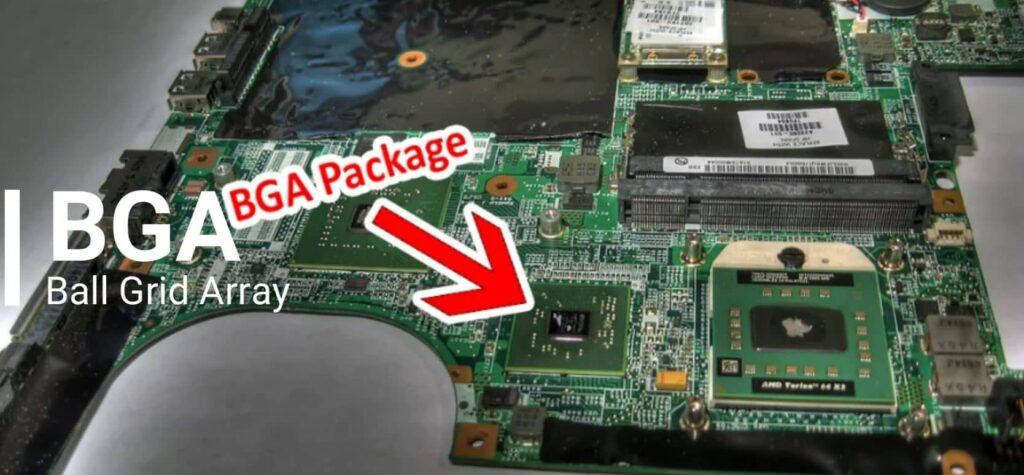Are you wondering if it’s possible to upgrade or change laptop processor? or can we change processor of laptop? Perhaps you’re looking to boost your laptop’s performance or you need a processor that can handle more demanding applications. Whatever your reason may be, changing a laptop processor is possible, but the extent to which this can be done depends on several factors, including the type of processor socket used by the laptop’s motherboard.
In this article, we’ll discuss whether is it possible to change processor of laptop? along with the different types of processor sockets commonly used in laptops, how to determine which type your laptop uses, and what to consider when choosing a compatible processor. We’ll also cover some precautions to take before attempting to upgrade or change laptop processor and provide some outbound links for further reading. However, if you are also using a desktop with an old processor and want to upgrade the same, then read out changing processor in desktop (With Easy Steps).
Table of Contents:
- Types of Processor Sockets
- Checking Your Laptop’s Processor Socket
- Choosing a Compatible Processor
- Precautions Before Upgrading or changing laptop Processor
- Watch the YouTube Video
- Conclusion
Types of Processor Sockets
The three main types of processor sockets commonly used in laptops are Land Grid Array (LGA), Pin Grid Array (PGA), and Ball Grid Array (BGA). Each of these types has its own advantages and disadvantages when it comes to upgrading or changing the processor.
- Land Grid Array (LGA) sockets have pins that are mounted on the motherboard, and the processor has flat contacts that fit over the pins. This type of socket allows for easy installation and removal of the processor, making it relatively simple to upgrade or change the processor in an LGA socket.

- Pin Grid Array (PGA) sockets have pins that are mounted on the processor itself, and the motherboard has holes that the pins fit into. This type of socket is commonly used in laptops, but it can be more difficult to upgrade or change laptop processor in a PGA socket because the pins can become bent or damaged, making it difficult to properly seat the processor.

- Ball Grid Array (BGA) sockets have soldered connections between the processor and the motherboard. This means that upgrading or changing the processor in a BGA socket requires specialized equipment and expertise, as the solder connections must be removed and replaced without damaging the motherboard.

Checking Your Laptop’s Processor Socket
Before attempting to upgrade or change your laptop’s processor, it’s important to determine the type of socket used by your laptop’s motherboard. You can usually find this information in your laptop’s user manual or by searching online for your laptop’s model number and motherboard specifications.
Choosing a Compatible Processor
Once you have determined the type of socket used by your laptop’s motherboard, you can begin researching compatible processors that will work with your existing hardware. It’s important to choose a processor that is compatible with your motherboard’s socket type, as well as one that is compatible with your laptop’s power supply and cooling system.
Some processors may require more power or generate more heat than your existing processor, so it’s important to make sure that your laptop’s power supply and cooling system can handle the increased demands. Upgrading your laptop’s cooling system may be necessary if you plan to install a processor that generates more heat than your existing processor.
Precautions Before Upgrading or changing laptop Processor
Before you begin the process of upgrading or changing your laptop’s processor, it’s important to back up all of your important data and create a system restore point in case something goes wrong during the installation process.
If you are not comfortable with the process of upgrading or changing your laptop’s processor, it’s recommended that you seek the assistance of a professional technician (consider searching for local computer repair shops or contacting the manufacturer for authorized service providers) who has experience with laptop hardware. Trying to upgrade or change laptop processor without the proper knowledge and expertise can lead to permanent damage to your laptop’s hardware.
Watch the YouTube Video

Conclusion
In summary, it is possible to upgrade or change laptop processor, but the extent to which this can be done depends on the type of socket used by the laptop’s motherboard. LGA sockets are the most user-friendly type of socket, while BGA sockets are the least user-friendly. PGA sockets are commonly used in laptops, but can be more difficult to work with than LGA sockets. Before attempting to upgrade or change your laptop’s processor, it is important to research compatible processors and make sure that your laptop’s power supply and cooling system can handle the increased demands.
Thank you for taking the time to read our guide. We hope that the information provided was helpful in guiding you through the process of upgrading your laptop’s processor. If you have any feedback or suggestions on how we can improve our guide, please let us know. We value your input and are always looking for ways to make our content more informative and useful for our readers.
